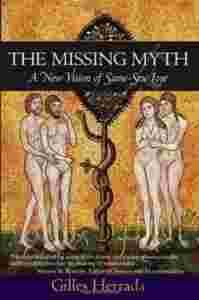THE MISSING MYTH: A NEW VISION OF SAME-SEX LOVE

Aukcja w czasie sprawdzania była zakończona.
Cena kup teraz: 132.30 zł
Użytkownik bookstreet
numer aukcji: 4176996774
Miejscowość Kalisz
Wyświetleń: 4
Koniec: 22-05-2014, 18:48
Dodatkowe informacje:
Stan: Nowy
Okładka: miękka
Kondycja: bez śladów używania
